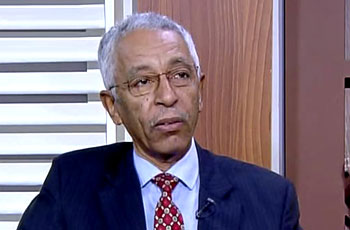
By Dr. Al-Khidr Haroun
In language, “standing out” refers to someone or something unmatched among people or things. It can mean having no equal, akin to the meaning behind the name of Pakistan’s Prime Minister, Benazir Bhutto—“the unparalleled”—most likely referring to her beauty and charm. The derivative shazee is similarly related to strength and intensity, as Arabs often describe the potent aroma of musk as shazee, and they adopted it as a name for women, celebrating its beauty in poetry and song, like the iconic Shazee Zahra that Kabli sang:
“Fragrant like flowers, yet not flowers—
Where then are the shade and the stream?”
This showcases a poetic interplay of contrasts—shazee suggests flowers, flowers hint at shade, and shade implies nourishing waters. But if this fragrance emerges from something devoid of blossoms and streams, it opens vast imaginative possibilities to find the source of this unique scent. Such poetry liberates the mind, transcending the darkness of place and the cruelty of human and personal betrayals into realms brighter and more splendid.
Words, like people, vary in reputation and appeal. A good man or woman may suffer a lifetime under an unflattering name, while the reverse also holds true. Take the word shadh (deviant)—its immediate associations are with abnormality and deviation from acceptable norms. Yet, this term could signify uniqueness and brilliance in intelligence and creativity. Similarly, oud (wood) denotes dry timber, contrasting life-sustaining water and greenery, yet it’s the name of the most precious incense used in royal courts. A friend once told me about the finest oud found in a remote corner of the Indian subcontinent, sourced from trees ravaged by termites. His realization of this fact felt almost disappointing—oud, that coveted luxury, born from decay!
Returning to the intriguing title: “Who is this that stands out and excels?” It refers not to an individual but to an entire nation—the people of Sudan.
How has Sudan stood out?
Sudan diverged from the trajectory of the lighter-skinned world after the decline of the Kushite civilization, the great creation of Cush, son of Ham, son of Noah. Ancient myths claimed Ham was cursed by his father for seeing him drunk and naked, a curse said to stain Ham’s descendants with dark skin. However, history tells another story: Cush, dark-skinned and proud, initiated humanity’s first civilization—Kush. Its influence extended to India, with innovations such as temple-building, metallurgy, and astronomy. This flourishing contrasted starkly with the long dormancy of Ham’s lighter-skinned brothers.
Artifacts from Kush and Nubia continue to astound archaeologists, showcasing mastery in ceramics, glasswork, and gold. Greek historian Herodotus marveled at their advanced ethical behavior, calling them “God’s chosen people.” German scholar Werner described the area between Khartoum and Aswan as the cradle of civilization, where livestock domestication and linguistic evolution began. British historian Martin Bernal’s Black Athena chronicled how Greece learned geometry and arithmetic from Egypt, a term encompassing the Nile Valley.
After Kush declined, Sudan remained a beacon of resilience and virtue, embracing Christianity and later Islam, thriving in its vast cultural and linguistic diversity. When modernity arrived, Sudanese professionals—doctors, engineers, teachers, and artisans—excelled globally. Their nobility, generosity, and refusal to accept oppression became defining characteristics.
Even in exile, Sudanese communities challenge stereotypes. Honesty, hospitality, and altruism—values deeply rooted in their culture—astonish outsiders. Their Arabic remains pure and eloquent, producing both majestic poetry and poignant prose. Amid global turmoil, Sudanese people, like the legendary figure of Antara, embody virtues that outshine expectations.
Standing Out in a Time of Adversity
Today, Sudan faces existential threats, with adversaries plotting its dismemberment. Yet, as in the past, it stands tall, confronting external aggression and internal betrayal with dignity. A story shared by the Algerian intellectual Bashir Boumaaza resonates: despite their trials, civilizations like Sudan’s endure and rise again. This is a call for unity among Sudanese people to defend their homeland, preserving its profound legacy.
In doing so, Sudan epitomizes the qualities of those described as “a people who purify themselves,” standing out for their unmatched virtues. Indeed, Sudan has excelled and will continue to do so, guided by resilience, justice, and an unwavering commitment to human dignity.



